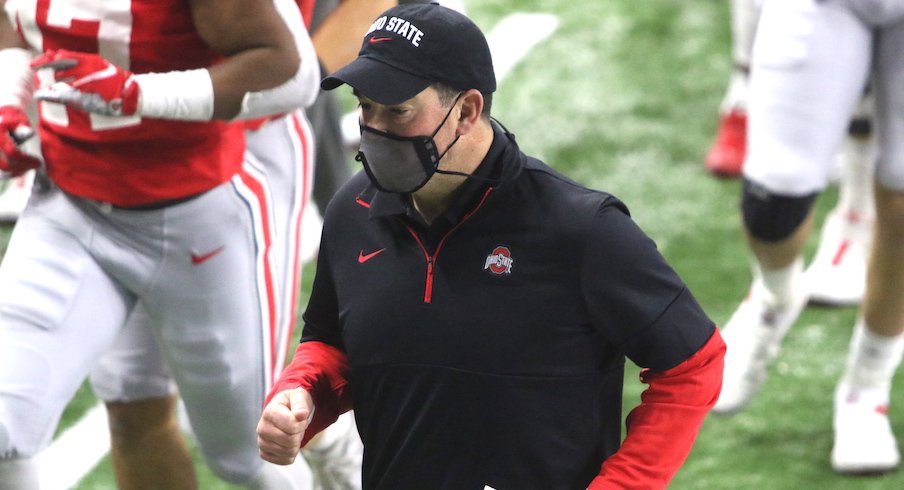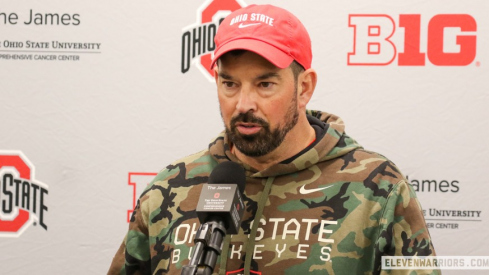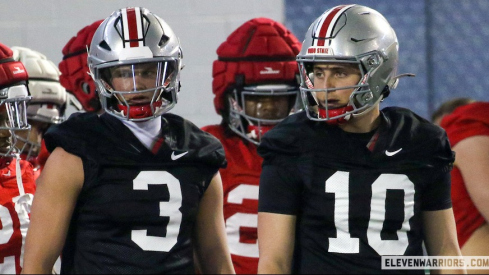Until this weekend, all Big Ten athletes who tested positive for COVID-19 had to sit out a bare minimum of 21 days.
That rule is no longer in effect. On Sunday, the Big Ten decided to reduce the minimum number of days all athletes – not just football players – who test positive for coronavirus must sit out of competition for a minimum of 17 days, per ESPN's Adam Rittenberg. The cardiac protocols will remain in place, Rittenberg reported.
The long-rumored, oft-discussed change was made on the same day the Buckeyes earned a spot in the College Football Playoff, where it'll face Clemson in the New Orleans-based Sugar Bowl with a shot to play in the national championship on the line. It's unclear how many players who missed Saturday's Big Ten championship game wouldn't have been able to play versus the Tigers if the 21-day rule remained in effect, but punter Drue Chrisman announced he's dealing with a coronavirus case and Josh Myers implied Chris Olave is, too.
For Ohio State players who tested positive for coronavirus be eligible to play in the Sugar Bowl on Jan. 1, they must have initially tested positive on Dec. 15 or before and have fully recovered.
The reduction to 17 days gets the Big Ten somewhat closer to the other Power Five conferences, though it doesn't go all the way to make them equivalent. The ACC, Big 12, Pac-12 and SEC all ban athletes who test positive for competing for 10 days rather than the number the Big Ten settled on.
While they still have to wait 17 days to play in game, players who test negative can begin practicing 10 days after their first positive test.
Twelve days ago, head coach Ryan Day mentioned the change was being discussed, and he said after Saturday's conference title win that he knew it was being looked at by the Big Ten "very hard.
Three months ago when the 21-day rule was implemented, Ohio State team physician Jim Borchers mentioned the cardiac testing followed by a re-acclimatization period as the reasoning for it.
"Our experts agree that it needed to be at least 14 days from that positive test at a minimum before that cardiac testing was completed and evaluated by cardiology experts and that athlete cleared," Borchers said in mid-September. "And then there's the recommendation that we had that any athlete who's recovering from illness or injury needs a transition period to go back to their activity. And to be clear, we wanted to put clear guidelines around that seven-day transition period so that effectively an athlete who is COVID-positive, the earliest that they could return to competition would be 21 days after being positive."
Three months later, with the Buckeyes set to face Clemson in the College Football Playoff, the Big Ten has softened the rule from 21 days to 17 days.


